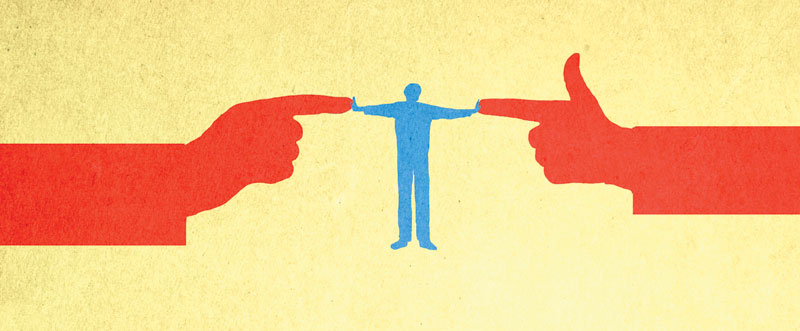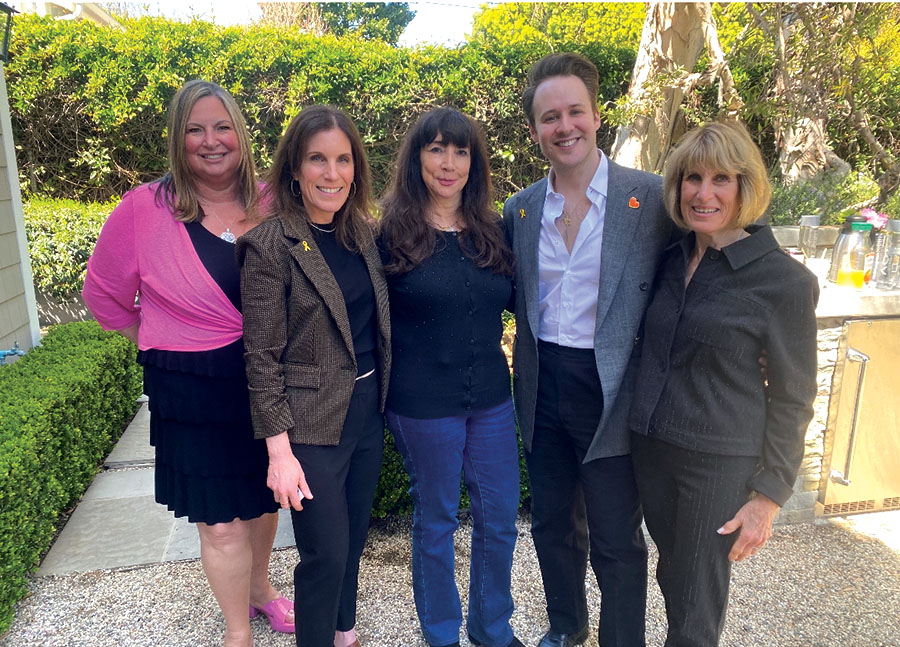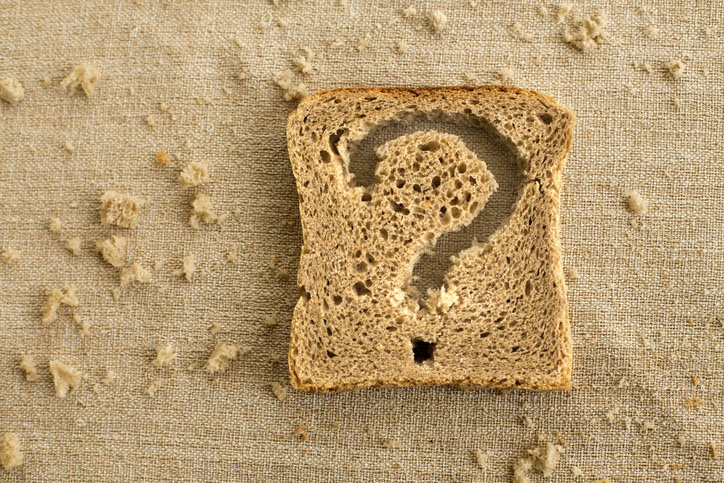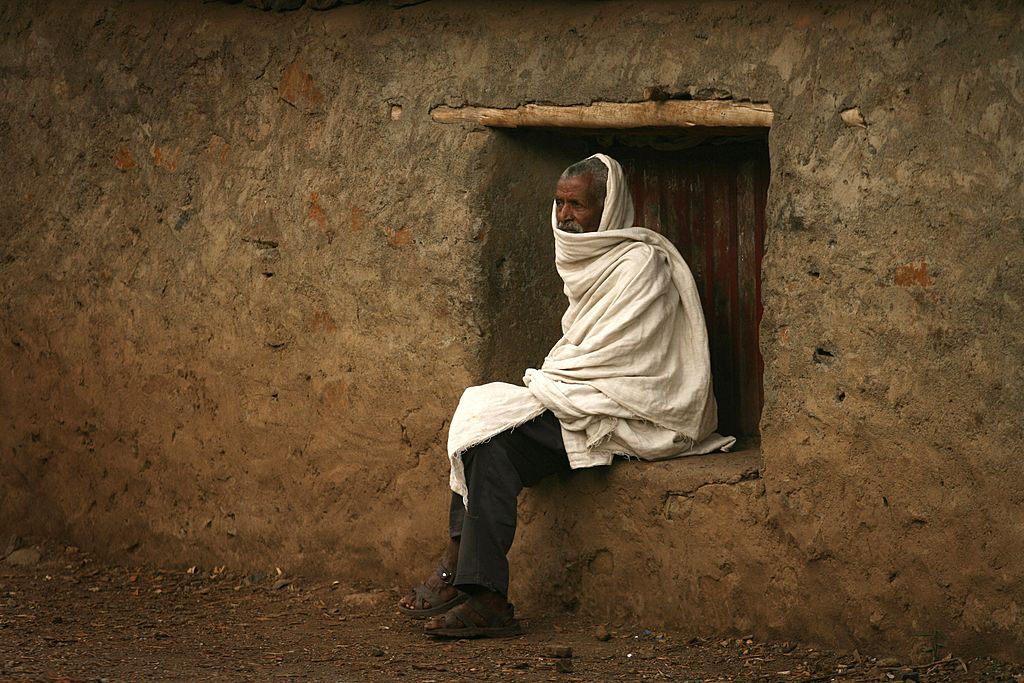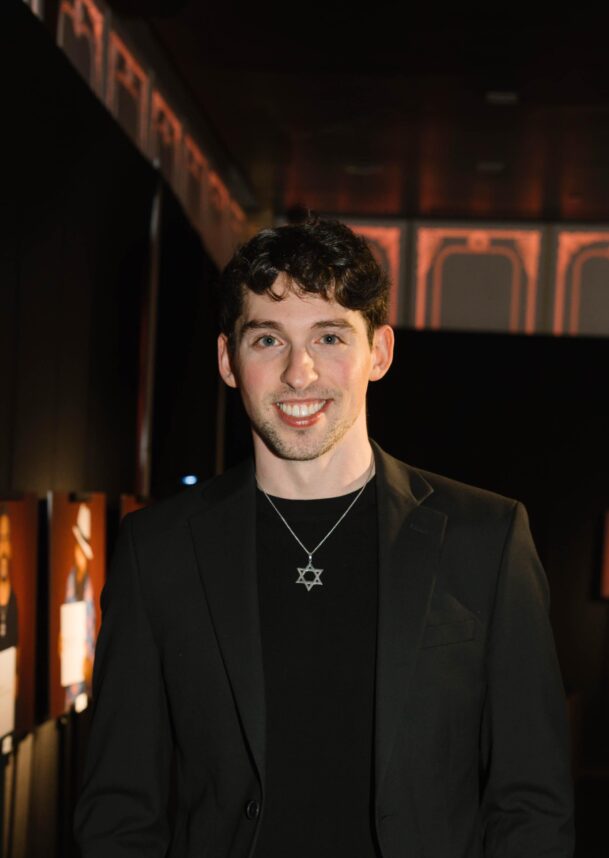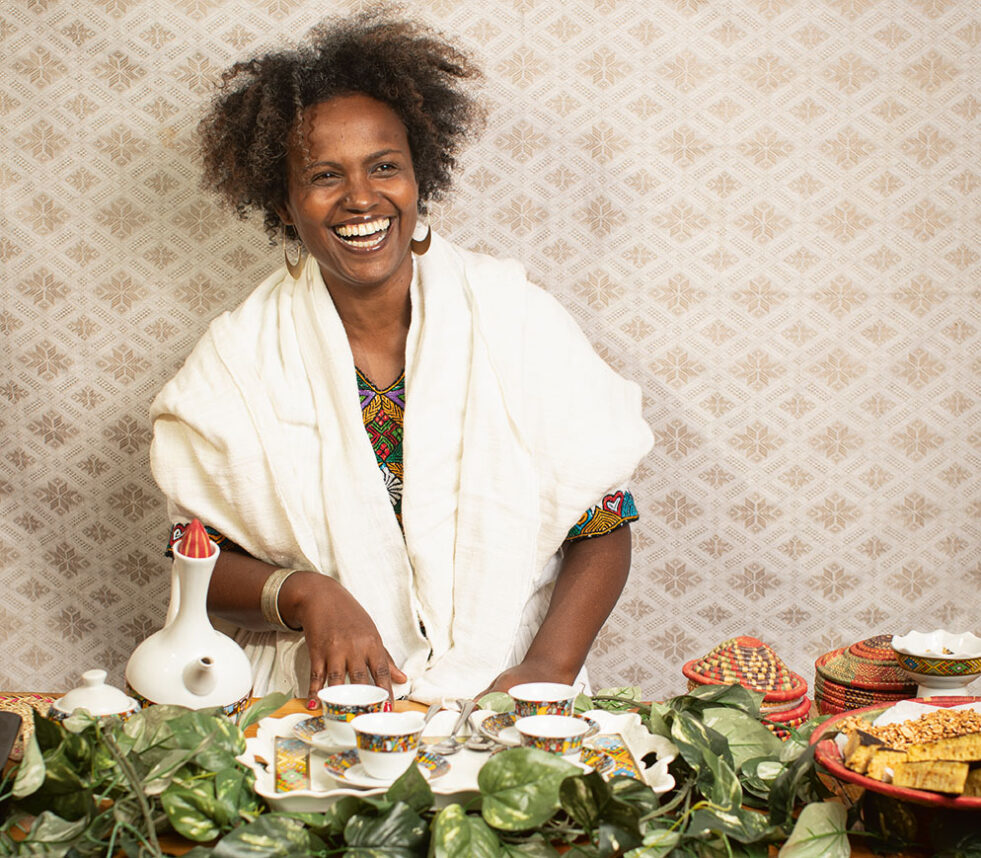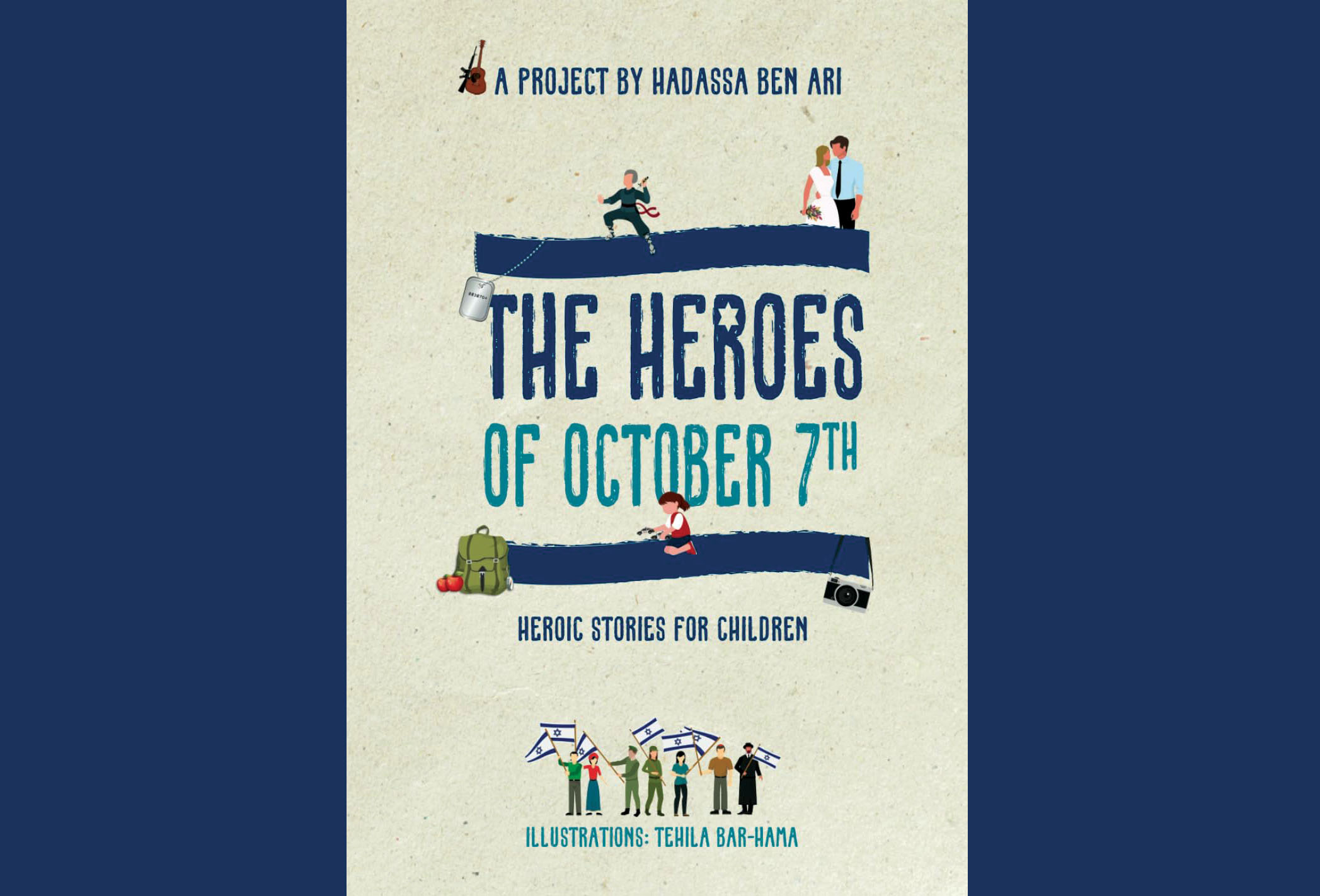
About a week after the Gaza war broke out on Oct. 7, Hadassa Ben Ari asked her children if they wanted to hear a story about a real hero who was fighting for Israel. When they said yes, she told them about Rachel Edri from Ofakim, who had been held captive by terrorists with her husband, David, in their home that day. Over the excruciatingly long hours, Rachel stayed remarkably calm, even making conversation with them. When she saw they were becoming agitated, she served them a meal, including coffee and cookies. Rachel Edri’s heroism was “being herself,” Ben Ari told her children. She knew how to keep people calm, and that feeding them well helped. Eventually, the police broke into the house, killing the terrorists and rescuing Rachel and David.
Ben Ari’s seven children were between the ages of three and 17 at the time, and while Israeli parents were warned not to talk about what was happening in Gaza to their young children, the children already knew bad things were happening. Ben Ari and other parents didn’t want their young kids getting information from the internet, friends, or their imaginations. From that day, she promised to tell her kids a story every day from the point of view of Israel’s many heroes and heroines.
Recruiting a volunteer team of writers, graphic designers, editors, and psychologists, Ben Ari launched a website, giborim-kids.com, where new stories were published each day, carefully written and edited with a readership of children in mind. From well over 200 stories on the site, seventy-one appear in “The Heroes of October 7th: Heroic Stories for Children,” recently translated into both English and French. “Rachel’s Cookies,” about Rachel Edri from Ofakim, opens the collection.
These stories, each only two pages long and accompanied by child-friendly illustrations, feature a wide array of heroes. In “Camille the Caregiver,” a Filipina caregiver faced down a terrorist and gave him 1,000 shekels and her cell phone, hoping it would buy safety for the woman she cared for, 95-year-old Nitza. It did. In “Shachar the Joker,” a boy who always got into trouble as a kid and struggled to pay attention in school grew up to be an IDF interrogator fluent in Arabic. This story concludes with the text message that Shachar sent a friend before entering Gaza and the lesson for children:
“’Read this, but don’t show it to anyone else. Smile. Try to make everyone you meet smile too. Be open to criticism and always try to improve. Know that the greatest quality a person can possess is the ability to bring joy to others. Open your ears to the needs of others and open your eyes to their sorrow…‘
”Shachar lived these words his entire life. He made others laugh but was also extremely serious when it came to people with special needs; he would joke around with them, just as he would with any other child. They were his good friends and they eulogized him when he was killed in battle. Shachar the joker was simply an unforgettable character.”
Several heroes in these stories die, but no details are ever given. Sometimes the reference to a hero’s death is veiled: “His luck ran out.” The stories have a consistent theme, which is that heroes are not born overnight, but emerge as heroes by using their natural talents and skills to help others. In “Ella Travels,” an influential travel blogger parlayed her social media influence to advocate for Israel, becoming “a hero calling out Israel’s messages to the world.” In “Ofek’s Little White Car,” the hero ignores police instructions to abandon his car and run from the area. Instead, Ofek picks up ten people stranded along the road, while his father, Raz, guided him on driving through the fields he knew so well to escape detection. The tiny car was meant for five, but all ten arrived to a safe place. In “The Children Are as Brave as Soldiers,” children who are caught in a battle zone call out to wounded soldiers, yelling at them not to fall asleep so they won’t lose consciousness while waiting for the ambulances to arrive.
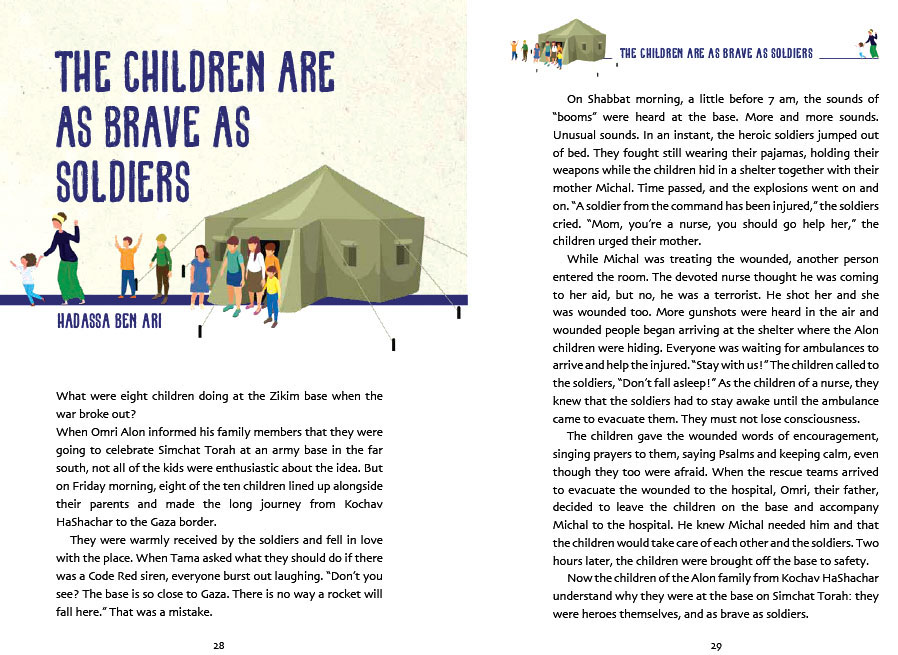
While children in Israel are regularly exposed to certain realities of war, including seeing people everywhere carrying semiautomatic rifles, having to hide in shelters and safe rooms, and knowing about kidnappings and murders, North American and European children are not. This made the work of translations into English (and French) very exacting work. Translated by Ango-Israeli parents in consultation with a psychologist, every word was calculated. The goal was for the stories not to frighten, but to help children understand that anyone can become a hero, and to connect to their own inner hero.
This book is sure to fill an urgent need for Jewish children (and even non-Jewish children) to be introduced to incredible stories of “everyday heroes” whose deeds have already become part of the cultural history of Israel. These stories are intended to be read by adults to or with children, and the book offers guidance on how to do so. For example, maintain eye contact and sit close to children as adults read the stories, perhaps while keeping a gentle hand on the child’s shoulder. Validate a child’s feelings about the stories, letting them know that it is normal and okay to feel sad, frightened, and anxious about the events described, and even about their own safety and mortality. No one can read these simply told but deeply affecting stories and not come away with a feeling of awe over the bravery, creativity, quick thinking, strength, selflessness, and resilience of the people involved — heroes one and all. Every parent needs to determine at what age these stories are appropriate to share with their children. Ben Ari estimates that American children may not be ready for these stories till ten or eleven.
“Now when we say ‘hero’ in our house, my children have a new understanding … They understand that in even doing small things, such as showing self-restraint by not hitting or waiting for their turn, they become bigger people.” – Hadassa Ben Arii
In having the book translated, Ben Ari hopes that Jewish children worldwide will have more understanding about Israel, “a tiny country where Jews can always stand proudly, so that these stories can serve as inspiration for them as well.” She hopes to eventually publish a second book of hero stories as well. “Now when we say ‘hero’ in our house, my children have a new understanding,” she said. “They understand that in even doing small things, such as showing self-restraint by not hitting or waiting for their turn, they become bigger people.”
Judy Gruen is the author of “Bylines and Blessings,” “The Skeptic and the Rabbi,” and several other books. She is also a book editor and writing coach.











